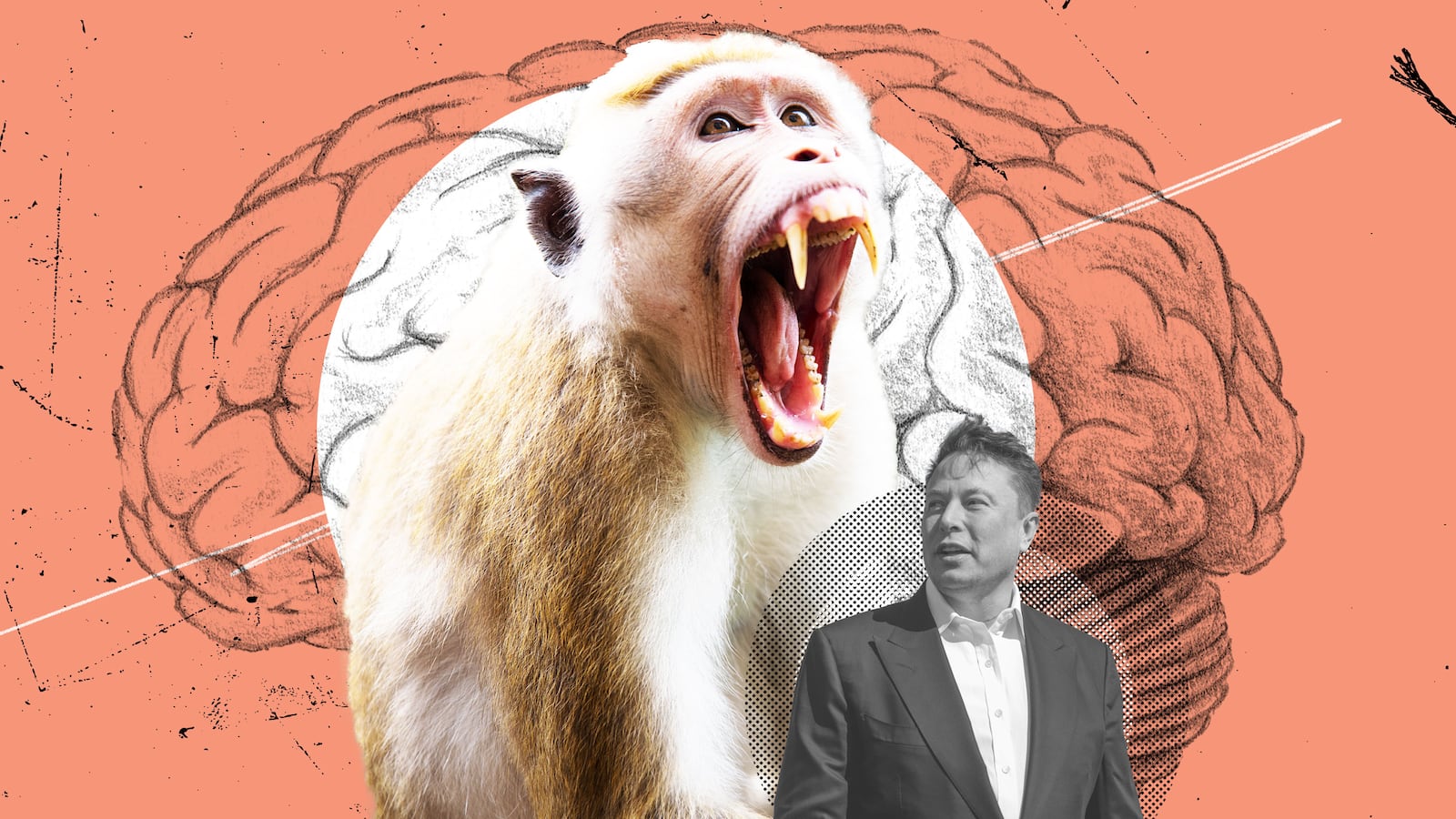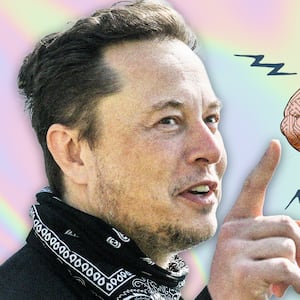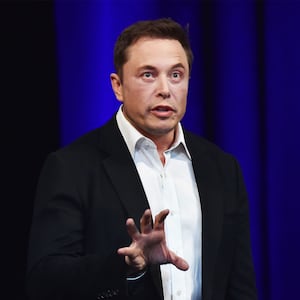An animal rights advocacy group is urging the U.S. government to cite Elon Musk’s brain technology startup, Neuralink, and the University of California-Davis, over allegations that the organizations may have committed “egregious violations of the Animal Welfare Act” while testing brain-implant devices on macaque monkeys.
The nonprofit, Physicians Committee for Responsible Medicine, plans to file a formal complaint with the Department of Agriculture on Thursday, according to a draft of the filings reviewed by The Daily Beast.
Physicians Committee is an activist group that “is dedicated to saving and improving human and animal lives through plant-based diets and ethical and effective scientific research,” according to its website.
Neuralink had a research partnership with U.C. Davis until 2020, documents show, in which university scientists helped the company test its technology on macaques.
The startup, which appears to be moving closer to human trials, was co-founded by Musk in 2016. Its initial goal is to help alleviate disabilities like paralysis, though the billionaire has previously signaled ambitions of helping humans develop “symbiosis” with artificial intelligence—a vision that has some experts concerned.
In recent years Neuralink videos, including one of a monkey controlling a “pong” video game, have gone viral online.
“I think that Neuralink seems to be awfully good at marketing and creating very selective videos. But the reality is much darker as to what these implants mean for the animals who have them put in their brains,” said Physicians Committee research advocacy coordinator Jeremy Beckham.
Asked about those allegations, Musk said that Neuralink’s work with the university has been limited.
“Neuralink goes to extreme lengths to care for our animals. We don’t ‘fund’ UC Davis – that is a state institution. Obviously,” he wrote in an email to The Daily Beast. He added that “truth and ‘The Daily Beast’ are not well-acquainted.”
When provided with a copy of the partnership contract between Neuralink and the university—which detailed $796,006 in initial funding in 2017—Musk replied with a slightly modified answer: “We don’t do any research work at UC Davis—that is an almost entirely government-funded institution. They provide us with a small number of Macaque monkeys and we take extremely good care of them.”
He further stated that prior news coverage of the partnership was “not accurate at all.”
It’s not clear what specific elements Musk disputes. The contract outlined a three-phase plan with U.C. Davis that called for 14 monkeys, six of which were designated for “terminal” procedures so that their brains could be examined after they were euthanized post-surgery.
A spokesperson for the university also acknowledged that the two organizations teamed up. “UC Davis did have a research collaboration with Neuralink, which concluded in 2020. The research protocols were thoroughly reviewed and approved by the campus's Institutional Animal Care and Use Committee,” the spokesperson wrote.
“We strive to provide the best possible care to animals in our charge. Animal research is strictly regulated and UC Davis follows all applicable laws and regulations.”
Physicians Committee claims otherwise. In a draft of the complaint it plans to file with the USDA, the activist group asserts that—based on more than 600 pages of university documents it obtained through legal action—at least 23 macaques were used in research at U.C. Davis in the “Neuralink-funded project,” and that “many, if not all, of the monkeys experienced extreme suffering as a result of inadequate animal care and the highly invasive experimental head implants.”
Some of the animals, the group claims, received as many as 10 craniotomies, were strapped into chairs for up to five hours per day, or “underwent terminal (fatal) procedures.”
At least one monkey was euthanized after “the area around the monkey’s head implant became infected,” the complaint alleged. Another macaque’s health also allegedly deteriorated after it received an implant. After it too was euthanized, a necropsy found signs of “brain hemorrhage” and “acute esophageal ulcers… likely due to vomiting.”
Physicians Committee had sued U.C. Davis last year, claiming the university had declined to hand over documents as part of a public records request. (The university spokesperson said it “fully complied with the California Public Records Act in responding to their request.”)
It ultimately turned over reams of documents, said Physicians Committee Associate General Counsel Deborah Dubow Press, though the group is now planning to sue for additional monkey health records, photos, and videos.
Press said the group will have difficulty monitoring current testing conditions at Neuralink, since it is not a public institution. And even if the nonprofit can convince the USDA to cite Neuralink and the university over the former partnership, the financial stakes are relatively low.
“Unfortunately, the law doesn't carry very significant penalties,” said Beckham, the research advocacy coordinator. “Even $10,000 would be a lot in our system… These fines are often just incorporated by the laboratories as a cost of doing business.”








